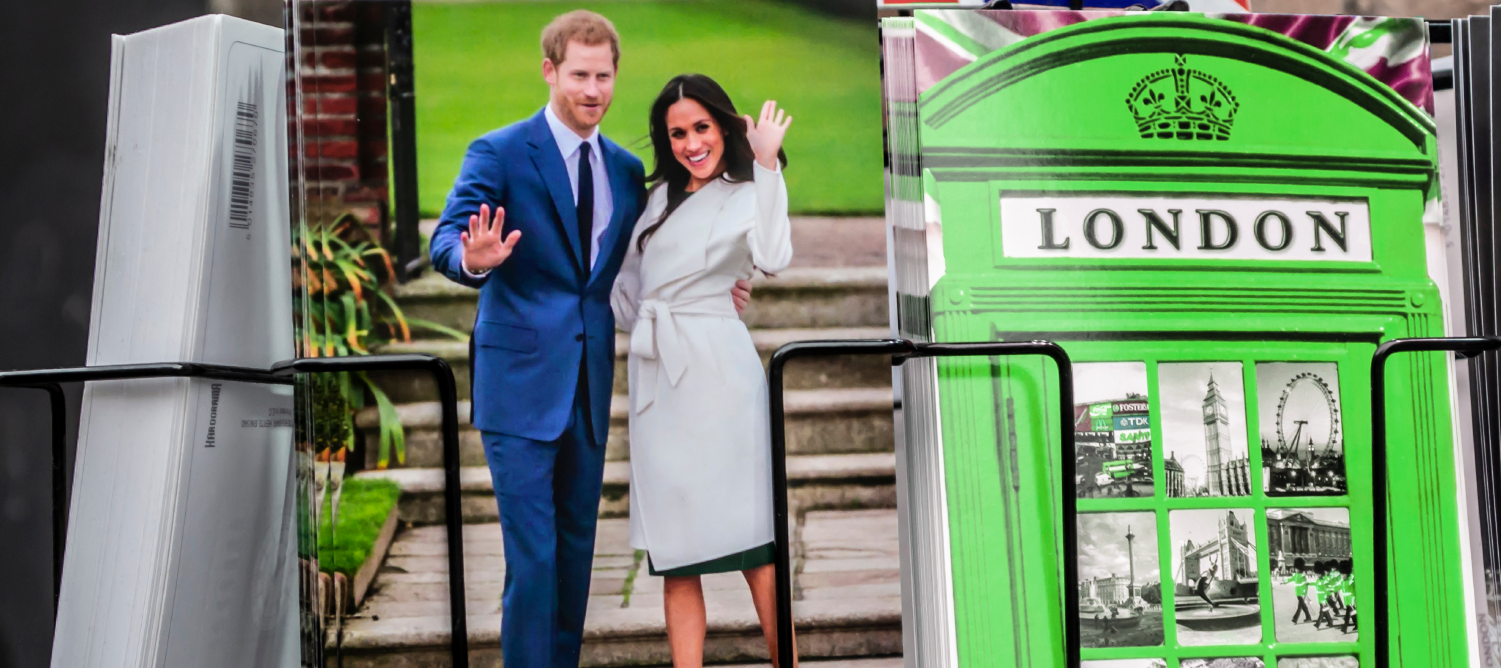Comparing Twitter commentary from the UK and US on Harry and Meghan’s interview

With claims of racism and mistreatment, it’s no surprise Prince Harry and Meghan Markle’s Oprah interview has dominated the news cycle. But is public response the same in the UK and the US? Let’s find out!
We used a social listening platform to collect some 40,000 tweets from the past week mentioning Harry and Meghan’s interview. Next, we uploaded that file straight to Relative Insight. Our platform works with the data export to automatically exclude information like date or author – and only analyses the text from the tweet.
Relative Insight uses comparative text analysis to uncover the words, phrases, topic, grammar and emotion unique to each data set. This method captures context and helps users uncover the unknown unknowns – the social insights you didn’t even know to look for.
The United States
Harry and Meghan elicited an empathetic response from audiences in the US. In response to the information revealed during the interview, Twitter users found the story saddening and heartbreaking – drawing easy comparisons to their treatment from the Palace to that of the late Princess Diana.

Empathy
Happiness was one emotive response we found among US audiences. Twitter users were glad and proud of the couple for coming forward so publicly. Frequently using words like brave and strong, US viewers were more likely, than those in the UK to characterize Harry and Meghan as courageous for leaving the royal family.
In the US, the interview was more likely to be characterized as important or major, and the experiences Meghan detailed was also more likely to shock or surprise US viewers. This is most likely because non-British audiences romanticize the idea of Princes and Princesses and the royal family.

US audiences were more likely than the Brits to discuss Meghan’s history of suicidal thoughts, and in the United States, there was greater discussion around mental health and suicide spurred by the interview. Tweets showed love and support for the couple and their decision to speak out.
The United Kingdom
The response we saw in the UK was significantly more polarized. While some Twitter users showed support for the couple and their decisions, many did not. UK audiences were more likely to characterize Harry and Meghan as a disgrace or embarrassment to the royal family and the nation. We also saw UK viewers express disappointment for the couple’s decision to speak out against their family.

Profanity
UK audiences responded to Meghan’s experiences with racism within the family itself when she divulged how a senior member of the family approached Harry with concerns about the skin color of her soon-to-be-born child, Archie. In response, many users on Twitter accused the family of being racist.
These British viewers showed their support for Harry and Meghan – not just through love, but through profanity. Tweets in the UK were more likely to verbally attack the royal family, using words like fuck, bastards and arseholes.

We found UK audiences were more likely to discuss the role of the media in the couple’s unhappiness and decision to leave the family. The actions of the tabloids were often described as bullying, and tweets specifically targeted Piers Morgan for his treatment of Meghan Markle.

Viewers in the UK saw the interview as more than just gossip and questioned how the claims will impact the nation and public as a whole. Audiences were interested in uncovering public sentiment through polling. Many offered their two cents as to what steps the government should take moving forward.
Royalists vs the rest
The interview captured the attention of audiences across the globe, but some UK viewers couldn’t care less. In the UK, we found more mentions of the words bored and boring than in America. UK viewers were less likely to be surprised by the couple’s claims.
US and UK viewers very clearly had differing opinions on both the Oprah interview and the couple’s decision to leave the royal family. Having no attachment to the history of the monarchy, US audiences accepted Harry and Meghan’s claims, showing the couple love and support.
While some Twitter users in the UK echoed this sentiment, other die-hard royalists talked about their ingrained respect for the establishment far passionately to side with Harry and Meghan.
Relative Insight is the key to understanding public sentiment and finding audience insights. Book a demo with our team to learn how the platform can help your brand or agency get insights you can’t get anywhere else.
